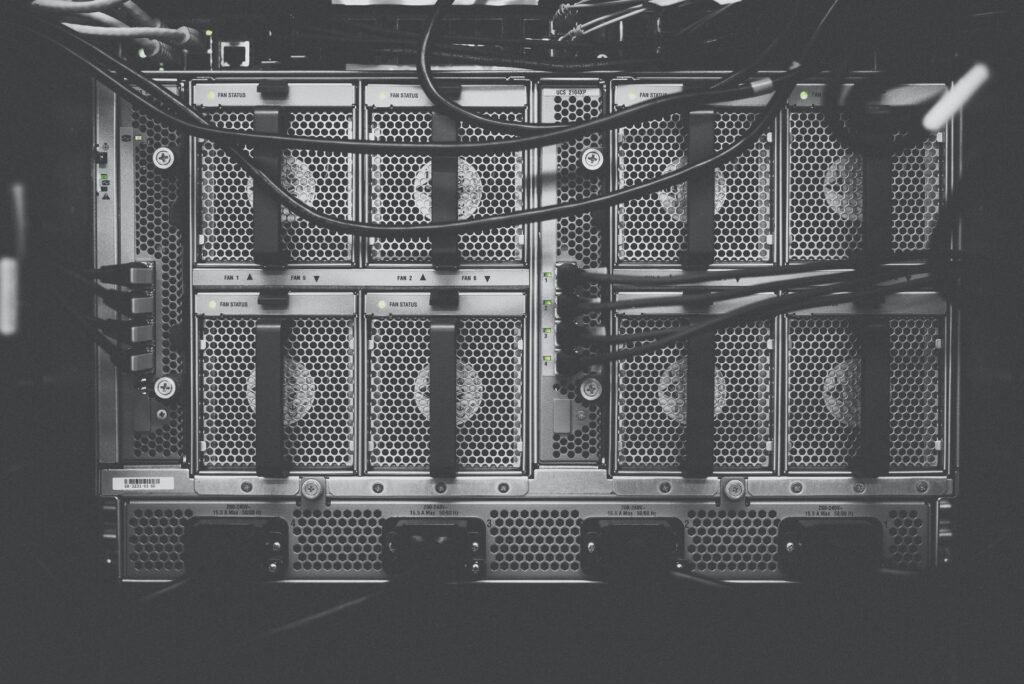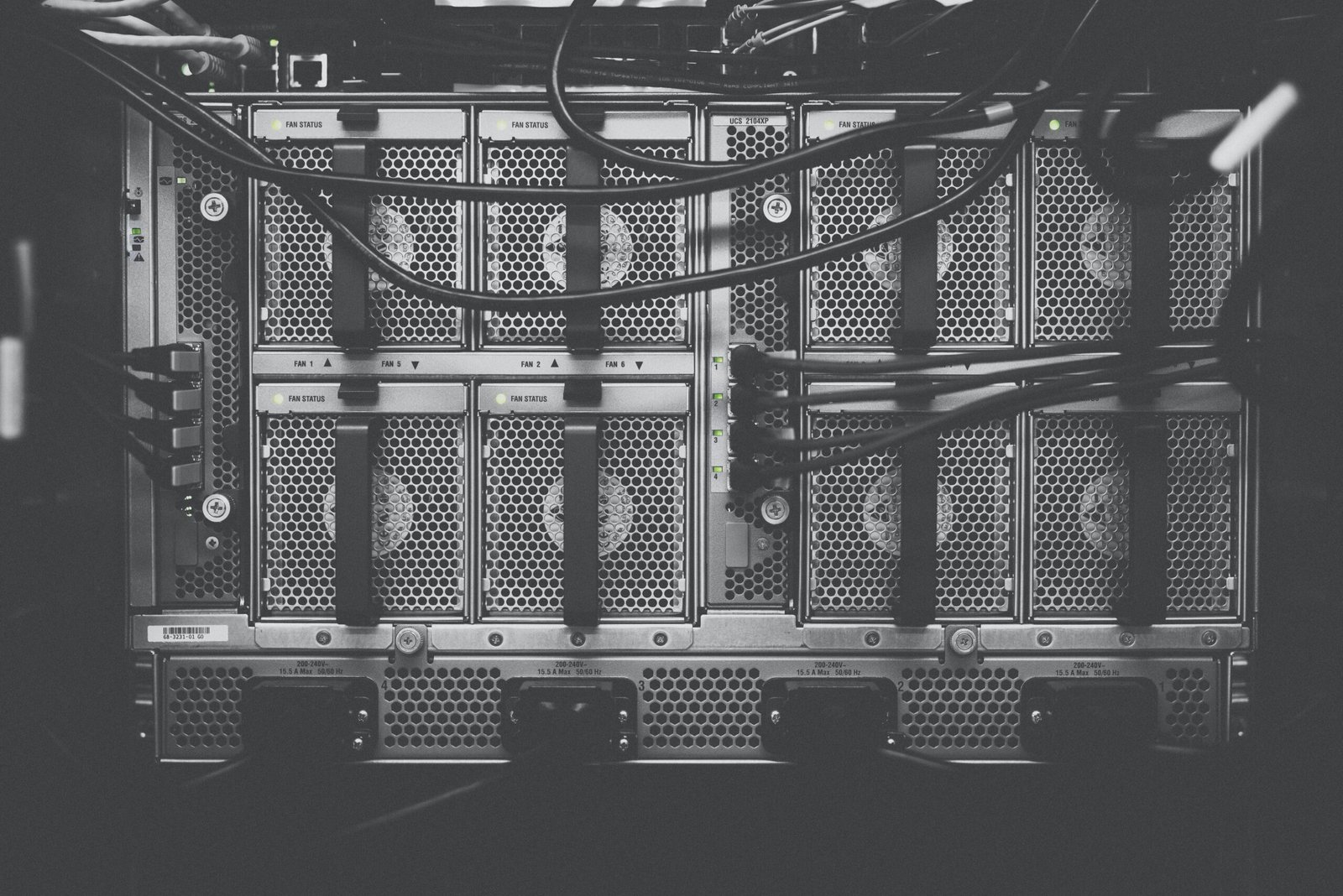Artificial intelligence has undoubtedly revolutionized the way we live and work, from voice assistants guiding us through our daily tasks to self-driving cars navigating the roads. However, amidst the awe-inspiring advancements, it is crucial to acknowledge and understand the potential risks associated with this rapidly evolving technology. This article aims to shed light on the various dangers posed by artificial intelligence, such as job displacement, privacy concerns, and even potential malevolent use. So, fasten your seatbelts as we navigate through the intricate world of AI and explore the risks that accompany its extraordinary capabilities.

Data Privacy and Security Risks
Potential misuse of personal data
As AI becomes more integrated into our daily lives, there is an increasing concern about the potential misuse of personal data. AI systems often rely on vast amounts of data to perform their tasks, and this includes personal information such as age, gender, location, and online behavior. If this data falls into the wrong hands, it could be used for malicious purposes, such as identity theft, financial fraud, or targeted advertising. It is crucial to implement robust data protection measures and ensure that individuals have control over how their data is collected, stored, and used.
Data breaches and cyberattacks
With the growing reliance on AI systems, there is an amplified risk of data breaches and cyberattacks. These attacks can lead to the compromise of sensitive information and can have severe consequences both for individuals and organizations. Hackers may exploit vulnerabilities in AI systems to gain unauthorized access, manipulate data, or even sabotage critical infrastructure. It highlights the importance of implementing robust cybersecurity measures, regularly updating AI systems, and fostering a culture of awareness and vigilance around data security.
Creation of powerful surveillance systems
AI technology has the potential to create powerful surveillance systems that can monitor and track individuals in unprecedented ways. While surveillance can be used for legitimate purposes such as maintaining public safety or preventing crime, the misuse of this technology can infringe upon individuals’ privacy rights. It raises concerns about the erosion of personal freedoms and the potential for governments or entities to abuse their surveillance capabilities. Striking a balance between the benefits of surveillance and safeguarding individual privacy is vital to build trust in AI systems.
Ethical Concerns
Unintentional bias in AI decision-making
One of the ethical concerns with AI is the unintentional bias that can occur in decision-making processes. AI algorithms are trained using large datasets, but if these datasets are biased or lack diversity, the resulting AI system can perpetuate and amplify those biases. This can lead to discriminatory outcomes in areas such as hiring, lending practices, or law enforcement. Efforts must be made to ensure that AI systems are trained on unbiased datasets and regularly audited to prevent and mitigate any unintended biases.
Lack of accountability and transparency
AI algorithms can be highly complex and difficult to understand, leading to a lack of transparency in how decisions are made. This lack of transparency can raise concerns about accountability and fairness. If AI systems are making decisions that have significant impacts on individuals or society, it is crucial to have mechanisms in place to hold both the algorithms and their developers accountable for their actions. Transparency in AI decision-making processes, along with clear guidelines and regulations, can help address these ethical concerns.
Moral implications of AI in warfare
The use of AI in warfare raises significant moral and ethical questions. Autonomous weapons, powered by AI, have the potential to make life-and-death decisions without human intervention. This raises concerns about the erosion of human control and the potential for unintended consequences. Additionally, there are ethical considerations regarding the targeting of individuals and the potential for AI systems to be used in ways that violate humanitarian principles. It is crucial to have international agreements and ethical frameworks in place to govern the use of AI in warfare and ensure the preservation of human life and dignity.
Job Displacement and Economic Impact
Automation leading to job loss
One of the most significant concerns surrounding AI is the potential for automation to lead to job displacement. As AI technology advances, tasks that were previously performed by humans can be automated, resulting in fewer job opportunities in certain sectors. This can create economic challenges and social disruptions, particularly for individuals who may not have the skills or resources to transition into AI-driven job markets. It becomes essential to invest in retraining programs and provide support to those affected by job loss, ensuring a smooth and inclusive transition to an AI-driven economy.
Growing income inequality
AI has the potential to exacerbate income inequality if not appropriately managed. As AI technology advances, it is likely that those with the skills and resources to leverage this technology will benefit the most, while those without access may be left behind. This can further widen the wealth gap and create socioeconomic disparities. To mitigate this risk, it is crucial to invest in education and training programs that equip individuals with the necessary skills to thrive in AI-driven industries. Additionally, policies need to be implemented to ensure a fair distribution of the benefits of AI across society.
Relevance of skills in the AI-driven job market
The rise of AI also raises questions about the relevance of certain skills in the job market. As tasks become increasingly automated, skills that were once in demand may become obsolete. To remain competitive in an AI-driven job market, individuals need to acquire skills that are complementary to AI technology, such as critical thinking, creativity, emotional intelligence, and adaptability. It becomes crucial to foster a culture of lifelong learning and promote the development of skills that cannot be easily replaced by AI, ensuring individuals remain relevant in a changing job landscape.
Unemployment and Social Disruption
Massive job displacement
The widespread adoption of AI has the potential to lead to massive job displacement across various sectors. AI technology can outperform humans in repetitive and mundane tasks, leading to automation of jobs previously performed by humans. While this can increase efficiency and productivity, it also raises concerns about unemployment rates and the social implications of widespread job loss. It becomes imperative to anticipate these changes and develop strategies to address the potential unemployment crisis, such as creating new job opportunities in emerging fields or implementing universal basic income programs.
Shift in societal structure and dynamics
The introduction of AI technology can bring about a significant shift in societal structure and dynamics. As jobs become automated, traditional employment models may become obsolete, leading to changes in the way we work and the distribution of labor. This shift can impact various aspects of society, including income distribution, social hierarchies, and the division of labor between humans and machines. The transition to an AI-driven society requires careful planning and consideration of the social, economic, and cultural implications to ensure a fair and inclusive future for all.
Potential increase in poverty rates
The increased job displacement resulting from AI adoption can also lead to a potential increase in poverty rates. If individuals are unable to find alternative employment opportunities or lack the necessary skills to adapt to an AI-driven job market, they may fall into poverty or face financial hardships. This can strain social welfare systems and exacerbate socioeconomic inequalities. To address this risk, it is crucial to implement comprehensive social safety nets, provide access to affordable education and training programs, and foster an inclusive economy that benefits everyone.

Unpredictability and Lack of Control
AI systems making their own decisions
One of the risks associated with AI is the potential for AI systems to make their own decisions without human intervention. While autonomous decision-making can enhance efficiency and productivity, it also raises concerns about the lack of human control and oversight. If AI systems make decisions that have significant consequences, it becomes essential to ensure that there are mechanisms in place to understand, explain, and challenge these decisions. The development of explainable and accountable AI systems is crucial for maintaining human control and avoiding potential unintended outcomes.
Programming errors and system failures
AI systems are not immune to programming errors and system failures, which can have severe consequences. A small bug or flaw in the programming code can lead to catastrophic failures or unintended behaviors. This is especially concerning in safety-critical industries such as healthcare, transportation, or energy, where the reliability and accuracy of AI systems are of utmost importance. Regular testing, thorough quality assurance processes, and continuous monitoring are necessary to minimize the risk of programming errors and system failures in AI applications.
Loss of human decision-making capabilities
As AI systems become more advanced, there is a risk of relying too heavily on AI for decision-making, potentially leading to a loss of human decision-making capabilities. If humans become overly reliant on AI systems, they may start to rely less on their own critical thinking skills and intuition. This can result in a reduced ability to make independent decisions or assess complex situations. Striking a balance between leveraging AI technology and preserving human decision-making capabilities is vital to avoid becoming overly dependent on AI and maintain our cognitive abilities.
Impacts on Healthcare and Safety
Potential risks in medical diagnosis and treatment
AI has the potential to revolutionize healthcare by improving diagnosis and treatment outcomes. However, there are associated risks in relying too heavily on AI in medical settings. AI algorithms are trained on historical data, and if this data is biased or incomplete, it can lead to inaccurate diagnoses or treatment recommendations. It is crucial to ensure that AI systems in healthcare are thoroughly validated, regularly updated, and subject to rigorous testing to avoid compromising patient safety and well-being.
Reliability of AI systems in safety-critical industries
AI is being increasingly deployed in safety-critical industries such as aviation, energy, and transportation. The reliable operation of AI systems is of paramount importance to prevent accidents, ensure public safety, and protect critical infrastructure. However, there is a constant need to assess and address potential vulnerabilities in AI systems to guarantee their integrity and reliability. Implementing safety standards, conducting regular audits, and establishing fail-safe mechanisms are necessary to enhance the trustworthiness and dependability of AI in safety-critical industries.
Liability and accountability in AI-guided decisions
When AI systems are involved in making decisions that have significant consequences, there are questions regarding liability and accountability. If an AI system makes an incorrect or harmful decision, who should be held responsible? Should it be the developers of the AI system, the organization implementing the AI system, or both? Establishing clear liability frameworks and regulations is essential to ensure accountability and protect individuals and organizations from potential harm caused by AI-guided decisions.

Technological Dependence
Overreliance on AI systems
As AI becomes more pervasive, there is a risk of overreliance on AI systems. While AI can greatly enhance productivity and efficiency, relying too heavily on these systems can create vulnerabilities and dependencies. If an AI system fails or malfunctions, it can disrupt operations and potentially lead to significant consequences. It is crucial to maintain a balanced approach by having backup plans, redundancies, and human involvement to mitigate the risks associated with overreliance on AI systems.
Loss of critical human skills
AI technology has the potential to automate tasks that were once performed by humans, leading to a potential loss of critical human skills. As AI takes over mundane and repetitive tasks, humans may no longer have the same level of proficiency in those areas. This can create challenges when it comes to maintaining and advancing essential skills such as critical thinking, problem-solving, creativity, emotional intelligence, and adaptability. To ensure a thriving society, it is important to prioritize the development and cultivation of these skills alongside the adoption of AI technology.
Difficulty in dealing with system failures or malfunctions
When AI systems fail or malfunctions, it can be challenging to deal with the consequences. AI systems are highly complex, and individuals may lack the expertise or knowledge to troubleshoot or fix technical issues. Additionally, the reliance on AI systems can create a technological gap, making it difficult to revert to manual or traditional methods when AI systems fail. Adequate planning, monitoring, and training are essential to ensure that individuals and organizations are well-prepared to handle system failures or malfunctions and minimize the potential disruptions they can cause.
AI Arms Race and International Conflict
Race for AI dominance among nations
The rapid advancements in AI technology have led to a race for AI dominance among nations. AI has the potential to provide tremendous military advantages, making it a strategic asset in international conflict. However, this race for AI supremacy can lead to an increase in tensions between nations and risks triggering an arms race. Cooperation and collaboration among nations are crucial to establish international norms and regulations around the development and use of AI in the context of military operations to prevent the escalation of conflict and maintain global stability.
Increased potential for cyber warfare
As AI technologies continue to evolve, so does the potential for cyber warfare. AI-driven cyberattacks have the ability to exploit vulnerabilities in various critical infrastructure, including communication networks, power grids, and transportation systems. The interconnectedness of the digital world amplifies the potential impacts of such cyberattacks, posing significant risks to national security and the global economy. International collaboration and investment in cybersecurity measures are necessary to mitigate the potential risks and protect against AI-enabled cyber warfare.
Impacts on global security and stability
The race for AI dominance and the potential for AI-enabled warfare can significantly impact global security and stability. The unequal distribution of AI technologies can create power imbalances among nations, potentially leading to conflicts and geopolitical tensions. It is vital to establish international agreements and dialogue to promote the responsible development and deployment of AI technology and ensure that the benefits of AI are shared equitably to maintain global security and stability.
Erosion of Human Intelligence and Empathy
Dependency on AI leading to intellectual decline
Overreliance on AI technology can lead to a decline in human intelligence. If humans rely too heavily on AI for problem-solving, critical thinking, and decision-making, their own cognitive abilities may weaken over time. This can result in a reduced capacity for independent thought and innovation, which are essential qualities for societal progress. Striking a balance between using AI as a tool and nurturing human intellectual capabilities is crucial to prevent the erosion of human intelligence.
Reduced human-to-human interaction and empathy
The increasing use of AI technology can lead to a reduction in human-to-human interaction. As AI systems automate tasks that were once performed by humans, there is a potential decrease in interpersonal communication and human interaction. This could have adverse effects on social relationships, empathy, and the development of emotional intelligence. It is important to recognize the value of human connection and maintain a healthy balance between AI-driven automation and meaningful human interactions.
Loss of creativity and problem-solving ability
AI technology excels in automating routine and structured tasks, but it may struggle with creativity and complex problem-solving. If individuals heavily rely on AI for these cognitive processes, their own creativity and problem-solving abilities may stagnate. Cultivating creativity and critical thinking skills is vital for driving innovation and adapting to new challenges. It is essential to strike a balance between leveraging AI technology and fostering human creativity to ensure continued development and the ability to address complex problems.
Existential Risk
AI surpassing human intelligence and control
One of the key concerns in the AI field is the potential for AI to surpass human intelligence and control. While AI is designed to augment human capabilities, there is a possibility that AI systems could evolve to a point where they become superintelligent and act beyond human comprehension or control. This scenario raises existential risks, potentially leading to unintended consequences or conflicts between AI and human goals. It is essential to continue research and development in the field of AI ethics and safety to mitigate these risks and ensure that AI remains aligned with human values and interests.
Potential for AI to outsmart humans
As AI systems become more advanced, there is a risk of AI outsmarting humans in certain domains. AI algorithms can process vast amounts of information at incredible speeds, enabling them to find patterns and make decisions that may surpass human capabilities. While this can lead to advancements in fields such as medicine, finance, or scientific research, it also raises concerns about the potential loss of human expertise and control. It is imperative to ensure that AI remains a tool that serves human interests and empowers human decision-making rather than replacing or outsmarting humans entirely.
Unknown consequences of advanced AI systems
As AI systems become increasingly complex and autonomous, there is a level of uncertainty regarding the potential consequences of advanced AI. The sophistication of AI algorithms, combined with their ability to learn and adapt, can lead to behaviors or outcomes that are unforeseen or unpredictable. It becomes crucial to implement safeguards and establish ethical guidelines during the development and deployment of advanced AI systems to anticipate and mitigate potential risks. Additionally, ongoing research and collaboration are necessary to understand and address the unknown consequences of advanced AI systems.
In conclusion, while the benefits of AI are undeniable, it is important to recognize and address the risks associated with its implementation. Data privacy and security risks, ethical concerns, job displacement, unpredictability, impacts on healthcare and safety, technological dependence, AI arms race and international conflict, erosion of human intelligence and empathy, and existential risks are all important considerations. By striving for responsible and ethical AI development, we can foster a future where AI technologies enhance our lives while minimizing potential risks and ensuring a fair and inclusive society.






